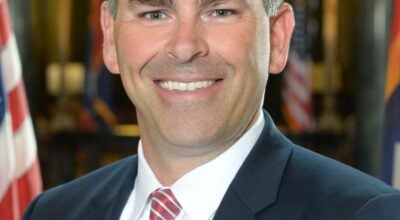Veterinarians should help with spay, neuters
Published 3:41 pm Tuesday, August 25, 2015
To begin, allow me to applaud the Oxford-Lafayette Humane Society for its unrelenting efforts in easing the burden of unwanted and/or abandoned pets in our city. Many animals are in need of homes, and the constant work by Mrs. Peterman, the tireless Alice and the rest of the staff and volunteers has been reflected in the positive placement of many lonely animals with loving families- a new start in life, something all the earth’s creatures, human or not, deserve.
But the other side of the subject is the lack of accessibility here in our city to free spay/neuter veterinary clinics. Fees for the spaying and/or neutering of a family pet have risen enormously over the past several years, to the point that the cost to protect our house pets from having unwanted litters is prohibitive for many families. Granted, some families are sufficiently unknowledgeable to think that their pet “only goes out for a little while at night” or “is usually in the house and only escapes every once in a blue moon.” Then there are those who simply refuse to accept that spaying/neutering is one of the most secure methods of animal control for our city.
But if pet owners in Oxford and Lafayette County were to have the option of having their pets spayed/neutered through a free clinic, the problem could be reduced considerably. Unwanted and unfixed dogs and cats roaming the roads and highways, risking being killed by oncoming traffic and even potentially causing accidents for everyone traveling those roads, including responsible citizens, is an unnecessary burden that we could begin to eliminate by a free spay/neuter clinic.
If the 12 veterinarians practicing here in Oxford would agree to volunteer one day a month to conduct a free spay/neuter clinic, those pet owners of scarce economic means would be able to keep their pets in a responsible way, without adding to the burden that our OLHS carries every day of its existence. The veterinarians could organize a schedule in which only two or three doctors could be operating on any given “free clinic” day, appointments could be scheduled for a certain number of procedures to be done, and the veterinarians could rotate their volunteer work so that any given team of three would only be volunteering for one day every three to four months. Free clinic days and contact numbers could be announced on the “Jumbotrons” at the sports events that everyone watches (either in person or on TV), in the weekly events section of the newspapers, in church bulletins, etc. This might be a step in the right direction to responsibly solving the growing problem that is facing not only the OLHS, but all pet owners of Oxford.
Mari Boutin
Oxford




